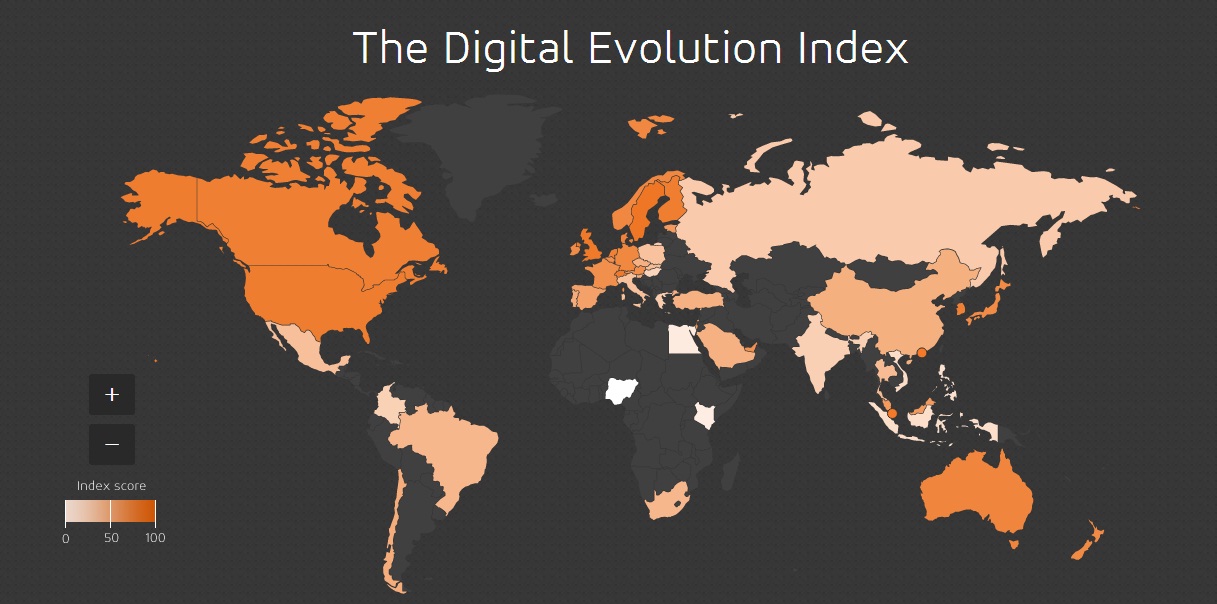
The Digital Evolution Index (DEI) was developed by The Fletcher School at Tufts University in collaboration with MasterCard and DataCash. The aim of the Index was to identify how selected countries around the world stack up against each other in terms of readiness for a digital economy. The index is derived from four broad drivers: supply-side factors (including access, fulfillment, and transactions infrastructure); demand-side factors (including consumer behaviors and trends, financial and Internet and social media savviness); innovations (including the entrepreneurial, technological and funding ecosystems, presence and extent of disruptive forces and the presence of a start-up culture and mindset); and institutions (including government effectiveness and its role in business, laws and regulations and promoting the digital ecosystem). The resulting index includes a ranking of 50 countries, which were chosen because they are either home to most of the current 3 billion internet users or they are where the next billion users are likely to come from.
Based on the performance of countries on the index during the years 2008 to 2013, one of four trajectory zones were assigned to them: Stand Out, Stall Out, Break Out, and Watch Out.
Stand Out countries have shown high levels of digital development in the past and continue to remain on an upward trajectory.
Stall Out countries have achieved a high level of evolution in the past but are losing momentum and risk falling behind.
Break Out countries have the potential to develop strong digital economies. Though their overall score is still low, they are moving upward and are poised to become Stand Out countries in the future.
Watch Out countries face significant opportunities and challenges, with low scores on both current level and upward motion of their DEI. Some may be able to overcome limitations with clever innovations and stopgap measures, while others seem to be stuck.
Out of the 50 countries in the index, there were four African countries namely South Africa, Egypt, Kenya and Nigeria. The highest ranked African country, South Africa (33rd place) is categorised as a Break Out country along with fellow BRICS countries India, China and Brazil as well as other countries like Vietnam, and the Philippines which are said to be improving their digital readiness quite rapidly. According to experts, staying on this “Break Out” trajectory means confronting challenges like improving supply infrastructure and nurturing sophisticated domestic consumers.
Egypt (48th place), Kenya (49th place) and Nigeria (50th place) are categorised as Watch Out countries along with Indonesia, Russia, which are all said to have important things in common like institutional uncertainty and a low commitment to reform. These countries are said to possess one or two outstanding qualities — predominantly demographics — that make them attractive to businesses and investors, but they expend a lot of energy innovating around institutional and infrastructural constraints. According to experts, unclogging these bottlenecks would let these countries direct their innovation resources to more productive uses.
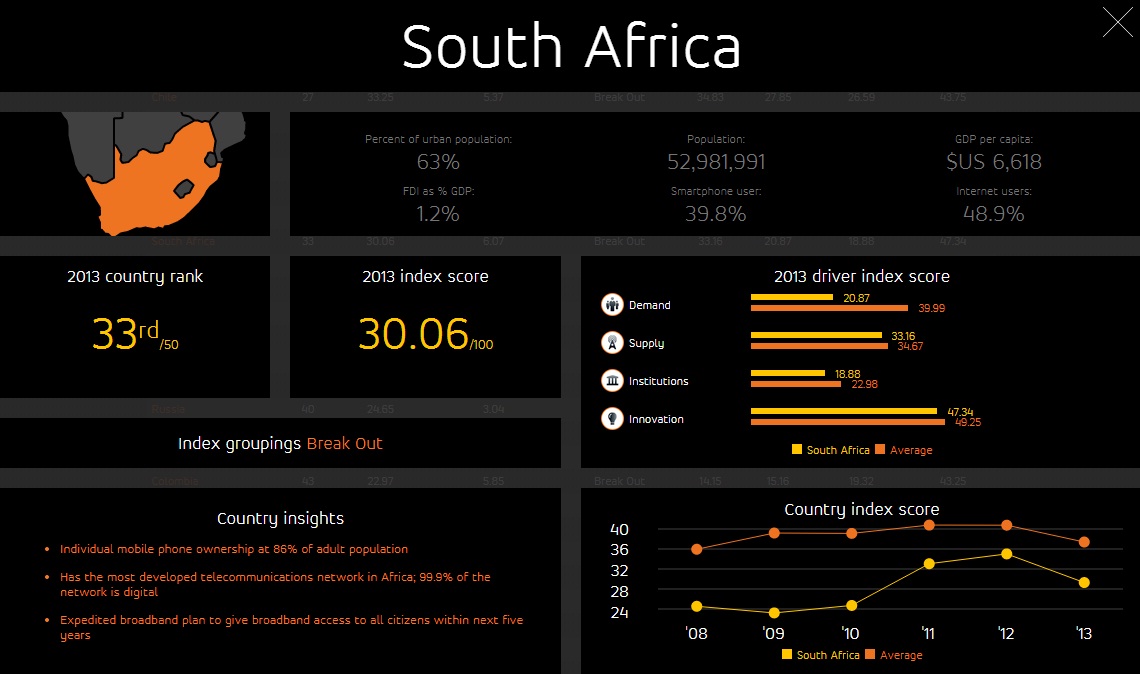
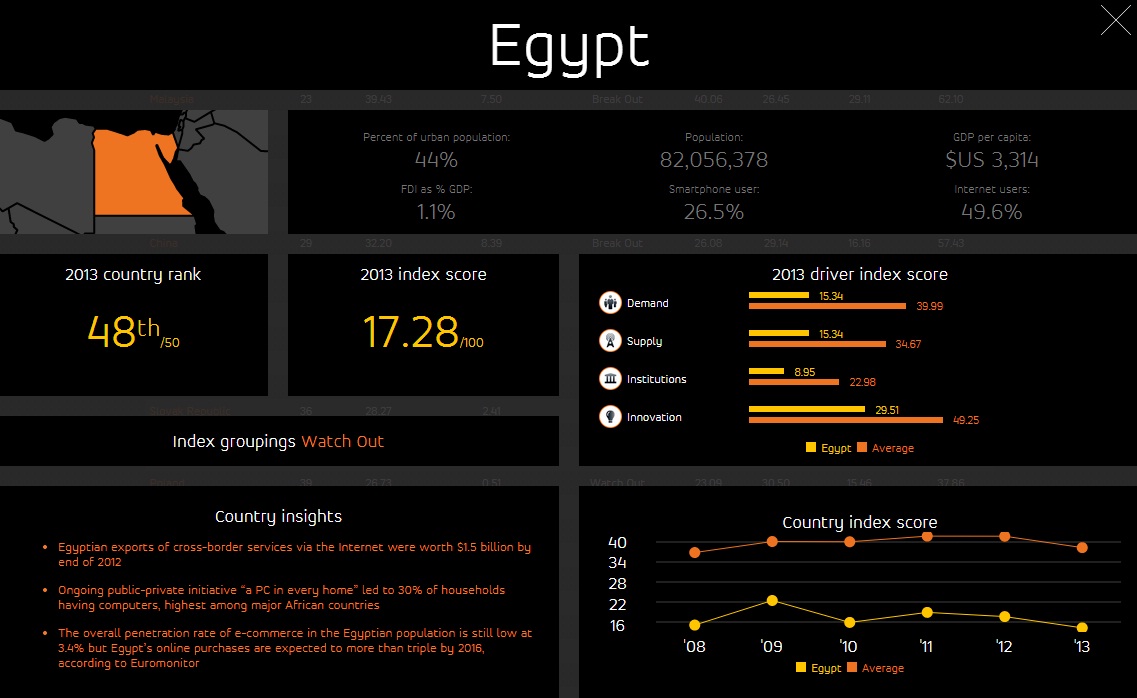
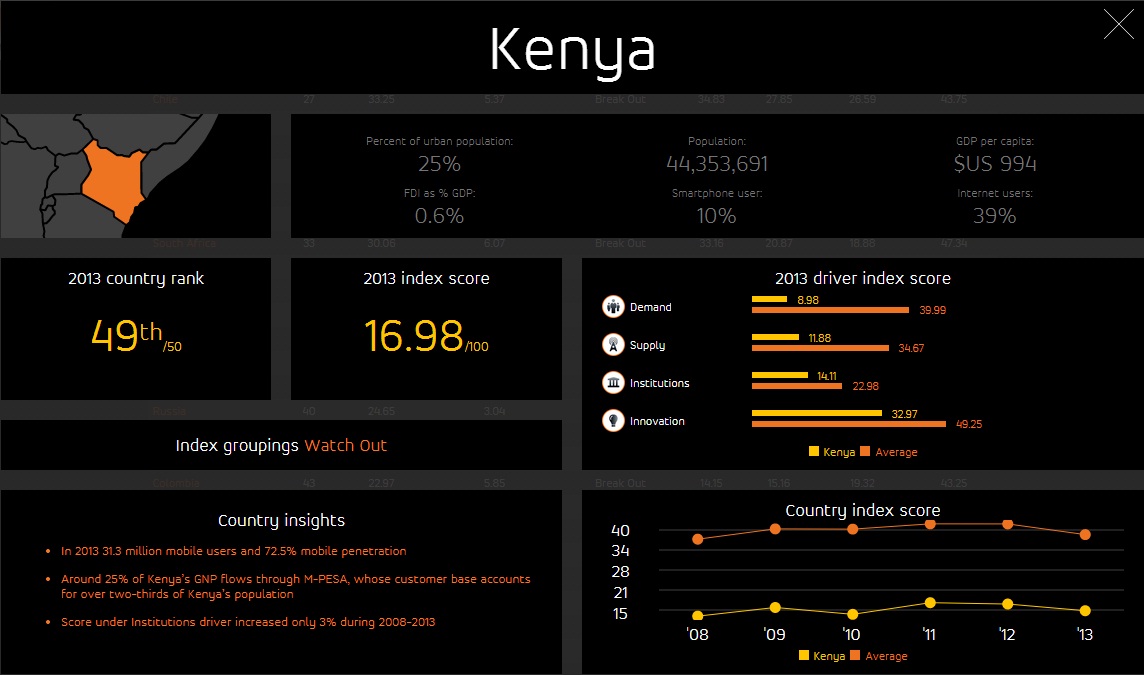
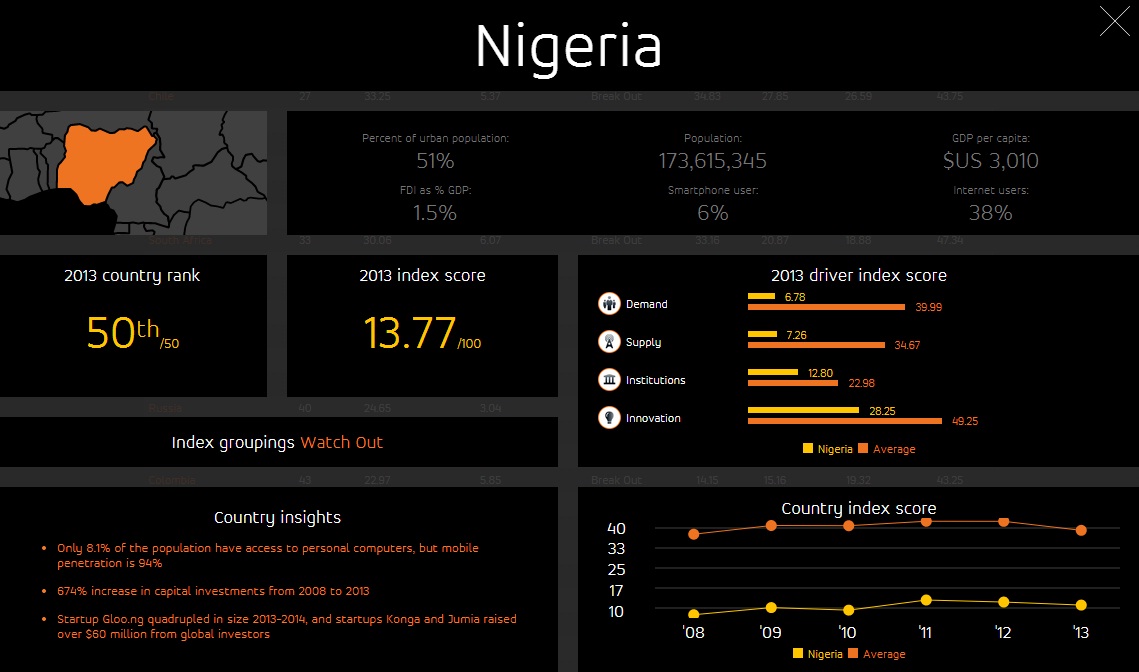
In the African context, many experts concur that e-commerce is now one of the key and arguably the leading enabler for growth within the consumer sector in Africa adding that e-commerce is set to dominate African retail markets over the next five years. Consequently, a myriad of opportunities are being provided for consumers and businesses to buy and sell both new and used items online. Among companies that provide such e-commerce platforms are OLX, Jumia, Rupu, Kaymu.
From a legal perspective, this blogger notes that Kenya’s digital economy will only be able to flourish under the proper legislative and regulatory conditions. In this regard, there are four critical laws which need to be enacted namely: a Data Protection Act, an Access to Information Act, an e-Transaction Act and a Cybercrime Act.